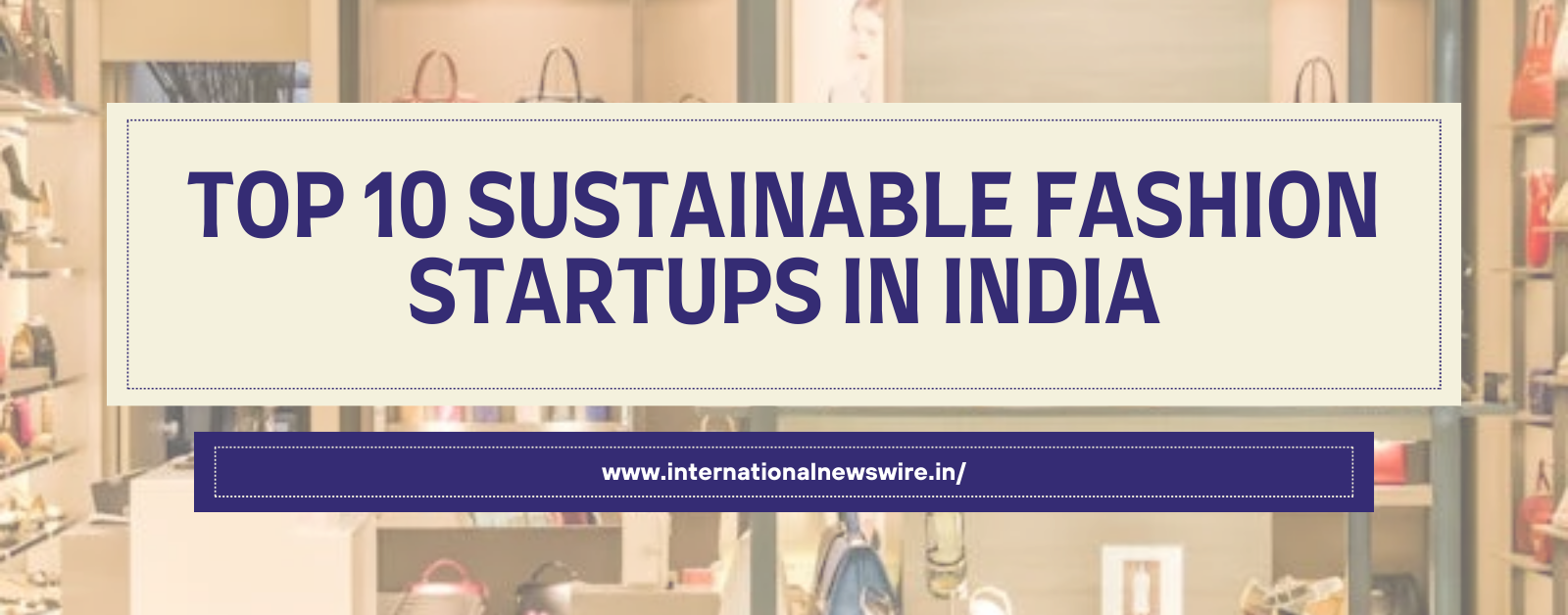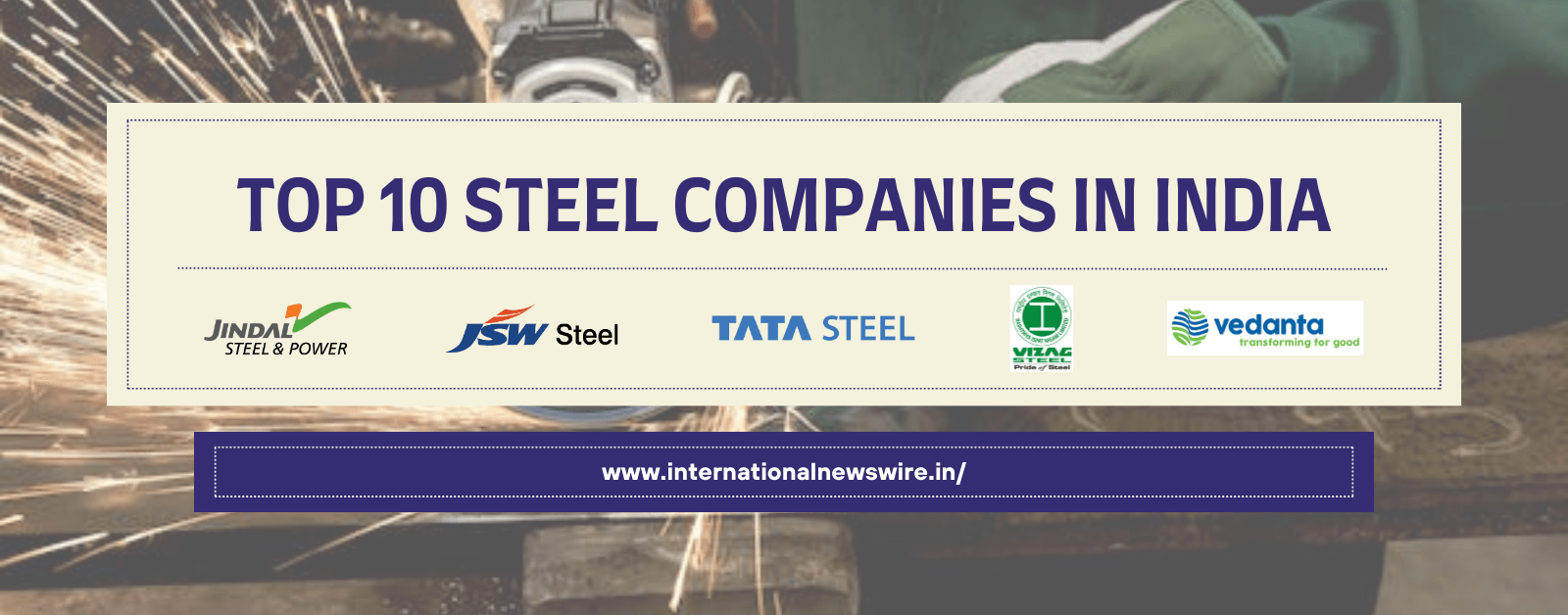In recent years, a dynamic wave of sustainable fashion startups in India has surged, reshaping the fashion industry landscape. These startups are leading the charge by challenging conventional practices with innovative approaches that prioritize sustainability, ethical production, and community empowerment. This transformation is driven by a heightened awareness of the environmental and social impacts of fashion, prompting these startups to pioneer new standards and inspire global change towards a more responsible and conscientious fashion industry.
These startups are not merely redefining trends; they are reshaping the entire fashion landscape by integrating eco-friendly materials, embracing traditional craftsmanship, and advocating for fair trade practices. From upcycling textile waste to promoting organic fabrics and supporting local artisans, these initiatives are proving that fashion can be both stylish and sustainable.
Table of Contents
1.BLabel
BLabel is a pioneering sustainable fashion brand based in Mumbai, committed to creating eco-friendly clothing using organic fabrics and natural dyes. Founded in 2017 by Priya Sharma and Rahul Jain, environmental enthusiasts, their mission is to promote ethical fashion practices and reduce the carbon footprint of the fashion industry in India. BLabel’s collections feature timeless designs that blend traditional craftsmanship with contemporary aesthetics, appealing to eco-conscious consumers looking for stylish yet sustainable clothing options.
| Detail | Description |
|---|---|
| Location | Mumbai, India |
| Year Founded | 2017 |
| Founder | Priya Sharma, Rahul Jain |
| Focus | Organic fabrics, natural dyes |
| Mission | Promote ethical fashion, reduce carbon footprint |
| Product Line | Clothing |
| Website | www.blabel.in |
2.GreenStitch
GreenStitch is a Bangalore-based startup known for its innovative approach to sustainable fashion. Established in 2015 by Meera Reddy, the company specializes in upcycling textile waste into trendy apparel and accessories. Their collections are designed to minimize environmental impact while supporting local artisans and promoting fair trade practices. GreenStitch has gained recognition for its commitment to transparency and eco-conscious production methods, making it a popular choice among consumers seeking environmentally friendly fashion alternatives.
| Detail | Description |
|---|---|
| Location | Bangalore, India |
| Year Founded | 2015 |
| Founder | Meera Reddy |
| Focus | Upcycling textile waste |
| Mission | Minimize environmental impact, support fair trade |
| Product Line | Apparel, accessories |
| Website | www.greenstitch.in |
3.Ethicus
Ethicus is a pioneering sustainable fashion label hailing from Tamil Nadu, founded in 2009. Specializing in organic cotton sarees, Ethicus promotes eco-friendly farming practices and supports rural artisans through fair wages and ethical production. Their sarees are handwoven using traditional techniques, offering consumers a blend of heritage craftsmanship and sustainable fashion. Ethicus is celebrated for its dedication to preserving Indian textile traditions while promoting sustainability in the fashion industry.
| Detail | Description |
|---|---|
| Location | Tamil Nadu, India |
| Year Founded | 2009 |
| Founder | Mani Chinnaswamy, Vijayalakshmi Nachiar |
| Focus | Organic cotton sarees, ethical production |
| Mission | Support rural artisans, promote eco-friendly farming |
| Product Line | Sarees |
| Website | www.ethicus.in |
4.Doodlage
Doodlage, established in New Delhi in 2012 by Kriti Tula, is known for its innovative use of upcycled fabrics to create stylish and sustainable clothing. The brand focuses on reducing waste by transforming textile leftovers into unique designs, thereby promoting circular fashion principles. Doodlage’s collections appeal to fashion-forward individuals who prioritize sustainability without compromising on style, making it a frontrunner in the upcycled fashion movement in India.
| Detail | Description |
|---|---|
| Location | New Delhi, India |
| Year Founded | 2012 |
| Founder | Kriti Tula |
| Focus | Upcycled fabrics, circular fashion |
| Mission | Reduce textile waste, promote sustainability |
| Product Line | Clothing |
| Website | www.doodlage.in |
5.No Nasties
No Nasties is a Goa-based ethical fashion brand founded in 2011 by Apurva Kothari. They specialize in organic, fair-trade cotton clothing and promote transparency in their supply chain. No Nasties ensures fair wages and safe working conditions for their farmers and garment workers. Their collections are known for their simplicity and comfort, appealing to conscious consumers who seek responsibly made clothing options that support social and environmental causes.
| Detail | Description |
|---|---|
| Location | Goa, India |
| Year Founded | 2011 |
| Founder | Apurva Kothari |
| Focus | Organic, fair-trade cotton clothing |
| Mission | Promote transparency, support fair wages |
| Product Line | Clothing |
| Website | www.nonasties.in |
6.Upasana
Upasana, founded by Uma Prajapati in Auroville, Tamil Nadu, is a sustainable fashion brand known for its commitment to social and environmental sustainability. Since 1997, Upasana has been collaborating with local artisans to create handmade clothing using natural dyes and organic fabrics. They emphasize fair trade practices and community development, empowering women artisans through skill development and sustainable livelihoods. Upasana’s designs reflect a blend of traditional craftsmanship and contemporary aesthetics, catering to global markets.
| Detail | Description |
|---|---|
| Location | Auroville, Tamil Nadu, India |
| Year Founded | 1997 |
| Founder | Uma Prajapati |
| Focus | Handmade clothing, natural dyes, organic fabrics |
| Mission | Empower women artisans, promote fair trade |
| Product Line | Clothing |
| Website | www.upasana.in |
7.Anita Dongre Grassroot
Anita Dongre Grassroot, part of Anita Dongre’s fashion empire, focuses on sustainable and eco-friendly fashion. Launched in 2015, Grassroot supports traditional Indian artisans and promotes handcrafted textiles. The brand emphasizes organic materials, ethical production processes, and fair wages for its craftsmen. Grassroot’s collections blend contemporary fashion with timeless Indian craftsmanship, catering to a clientele that values sustainability and cultural heritage.
| Detail | Description |
|---|---|
| Location | Mumbai, India |
| Year Founded | 2015 |
| Founder | Anita Dongre |
| Focus | Handcrafted textiles, sustainable fashion |
| Mission | Support traditional artisans, promote ethical practices |
| Product Line | Clothing |
| Website | www.anitadongre.com |
8.Kanelle
Kanelle, founded by Kanika Jain in New Delhi, is a luxury sustainable fashion brand known for its elegant designs and commitment to ethical production. Since 2011, Kanelle has been crafting clothing using organic fabrics and promoting slow fashion principles. The brand focuses on quality craftsmanship and timeless aesthetics, aiming to reduce environmental impact while offering sophisticated wardrobe staples. Kanelle appeals to discerning consumers who appreciate sustainable luxury and responsible fashion choices.
| Detail | Description |
|---|---|
| Location | New Delhi, India |
| Year Founded | 2011 |
| Founder | Kanika Jain |
| Focus | Luxury sustainable fashion |
| Mission | Promote slow fashion, use organic fabrics |
| Product Line | Clothing |
| Website | www.kanelle-online.com |
9.Bhusattva
Bhusattva, based in Pune, Maharashtra, is a sustainable fashion brand founded in 2013 by Shilpi Yadav. The brand emphasizes natural fibers, handloom techniques, and eco-friendly dyes in its clothing lines. Bhusattva promotes fair trade practices and works closely with artisans to revive traditional Indian textiles. Their collections blend contemporary designs with cultural heritage, catering to individuals who prioritize sustainability and ethical fashion choices.
| Detail | Description |
|---|---|
| Location | Pune, Maharashtra, India |
| Year Founded | 2013 |
| Founder | Shilpi Yadav |
| Focus | Natural fibers, handloom textiles, eco-friendly dyes |
| Mission | Revive traditional Indian textiles, promote fair trade |
| Product Line | Clothing |
| Website | www.bhusattva.com |
10.The Summer House
The Summer House, founded by Shivangini Padhiyar in Bangalore, is a sustainable fashion brand that emphasizes minimalism and eco-consciousness. Established in 2013, the brand uses organic fabrics and non-toxic dyes in its collections. The Summer House advocates for transparency in fashion production and promotes fair wages for artisans. Their timeless designs appeal to consumers looking for ethical and stylish wardrobe essentials that contribute positively to the environment.
| Detail | Description |
|---|---|
| Location | Bangalore, India |
| Year Founded | 2013 |
| Founder | Shivangini Padhiyar |
| Focus | Minimalist, eco-conscious fashion |
| Mission | Use organic fabrics, promote transparency |
| Product Line | Clothing |
| Website | www.thesummerhouse.in |
FAQs on sustainable fashion startups in India
Q1: What is sustainable fashion?
Sustainable fashion refers to clothing, shoes, and accessories that are designed, manufactured, distributed, and used in ways that are environmentally friendly. This includes using eco-friendly materials, reducing waste, and ensuring fair treatment of workers throughout the supply chain.
Q2: Why is sustainable fashion important?
Sustainable fashion is important because the traditional fashion industry is one of the most polluting industries globally. By promoting sustainability, these startups aim to minimize environmental impact, conserve natural resources, and support ethical production practices that benefit both people and the planet.
Q3: How do sustainable fashion startups in India contribute to environmental conservation?
Sustainable fashion startups in India contribute to environmental conservation by using organic or recycled materials, reducing water and energy consumption during production, promoting biodegradable packaging, and minimizing carbon emissions in their supply chains.
Q4: What are some challenges faced by sustainable fashion startups in India?
Some challenges include higher production costs for eco-friendly materials, limited availability of sustainable fabrics, educating consumers about the benefits of sustainable fashion, and competing with fast fashion brands on pricing and accessibility.
Q5: How can consumers support sustainable fashion startups?
Consumers can support sustainable fashion startups by choosing to buy from brands that prioritize ethical and sustainable practices, investing in quality over quantity, recycling or upcycling clothing, and advocating for greater transparency and accountability in the fashion industry.
Q6: Are sustainable fashion startups in India affordable?
While some sustainable fashion products may be priced higher due to the cost of eco-friendly materials and ethical production practices, many startups strive to offer accessible pricing by focusing on efficiency, minimizing waste, and building long-term relationships with suppliers and artisans.
Q7: What are the benefits of buying from sustainable fashion startups?
Buying from sustainable fashion startups supports ethical production practices, reduces environmental impact, promotes fair wages and safe working conditions for workers, and encourages innovation in eco-friendly materials and manufacturing techniques.
Q8: How can I identify if a fashion brand is truly sustainable?
Look for certifications (like GOTS for organic textiles), transparency in their supply chain, eco-friendly materials (organic cotton, recycled fibers), ethical labor practices (fair wages, safe working conditions), and commitments to reducing their environmental footprint (carbon neutrality, waste reduction).
Q9: How are sustainable fashion startups helping local communities in India?
Sustainable fashion startups often collaborate with local artisans and craftsmen, providing them with fair wages, preserving traditional skills, and supporting community development initiatives. These efforts help empower local communities economically and culturally.
Q10: What role does innovation play in sustainable fashion startups?
Innovation in sustainable fashion startups involves developing new materials, technologies, and business models that prioritize environmental and social sustainability. This includes advancements in recycling, upcycling, zero-waste designs, and sustainable supply chain management.
Conclusion
In conclusion, sustainable fashion startups in India are at the forefront of a transformative movement within the global fashion industry. By prioritizing eco-friendly materials, ethical production practices, and social responsibility, these startups are not only addressing environmental concerns but also promoting a more conscientious approach to consumerism.
Through innovative designs, collaborations with local artisans, and commitments to transparency, these startups are setting new standards for what it means to be a responsible fashion brand. They are proving that sustainability and style can coexist, offering consumers fashionable choices that minimize harm to the environment and uphold fair treatment of workers.
As awareness grows and consumer preferences shift towards sustainability, these startups are poised to lead the way in shaping a more sustainable future for fashion, both in India and worldwide. By supporting these initiatives and making informed choices, consumers can play a crucial role in driving positive change towards a more sustainable and ethical fashion industry.
Also Read
- Top 10 BioTech Startups in India
- Top 10 Renewable Energy Startups in India
- Top 10 WaterTech Startups in India
- Top 10 Waste Management Startups in India
- Top 10 GreenTech Startups in India
- Top 10 SpaceTech Startups in India
- Top 10 Mobility as a Service (MaaS) Startups in India
- Top 10 Cyber Defense Startups in India
- Top 10 Legal Services Startups in India
- Top 10 Remote Work Startups in India


